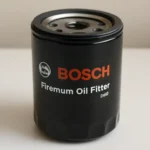Engine oil is a critical component that helps ensure your vehicle’s engine operates smoothly and efficiently. When it comes to selecting engine oil, synthetic oils stand out due to their superior properties. In this article, we will explore the effect of synthetic engine oils, recommended diesel synthetic oils, comparisons between engine oils, and synthetic oil prices to help you make an informed decision about the best oil for your vehicle.
Are you confused about the differences between synthetic engine oils? Curious about which one is right for your vehicle? This guide dives deep into the effects of synthetic oils, recommended diesel oils, price comparisons, and more!
Engine Oil Synthetic Oil Effect: Why It Matters
When it comes to choosing the right engine oil, synthetic oils are often the best choice due to their enhanced performance and long-term benefits. Unlike conventional oils, synthetic oils are specially engineered to provide superior lubrication and performance, making them ideal for high-performance engines.
Why Choose Synthetic Oil?
Synthetic oil is created through advanced chemical processes, ensuring that the oil is more consistent in its molecular structure than conventional oils. This results in several advantages:
-
Better Engine Protection Synthetic oils provide better protection against engine wear, especially in extreme temperatures. This makes them ideal for modern engines, which tend to operate under higher stress and temperature.
-
Longer Oil Change Intervals Because of its refined formula, synthetic oil can last longer than traditional oil. Many synthetic oils allow for oil change intervals of up to 7,500 to 10,000 miles, while conventional oils need to be changed more frequently.
-
Improved Fuel Efficiency Synthetic oils reduce friction more effectively than regular oils, which in turn improves fuel efficiency by allowing the engine to run more smoothly.
-
Better Cold Start Performance In colder temperatures, synthetic oils flow better, allowing for easier engine start-up and reducing the wear that can occur with thicker, conventional oils.
Real-World Example
Consider a high-performance sports car owner who uses synthetic oil for its ability to withstand extreme temperatures and pressure. In hot summer months, the synthetic oil’s ability to resist oxidation helps ensure that the engine remains lubricated, preventing damage that could be caused by overheating. Additionally, synthetic oil’s ability to perform at lower temperatures means that the engine will be better protected when starting in cold weather.
👉 Learn more about synthetic oils 👈
Recommended Diesel Synthetic Oil Engine Oil
Diesel engines have specific needs, and choosing the right synthetic oil for these engines can significantly improve performance and longevity. Diesel engines typically work under higher pressures and generate more heat, so the oil you choose needs to provide optimal protection.
Top Diesel Synthetic Oils
-
Mobil 1 Turbo Diesel Truck 5W-40 This oil is one of the best for diesel engines, providing enhanced protection against wear and offering improved fuel economy. It is ideal for both light trucks and heavy-duty diesel engines.
-
Shell Rotella T6 Full Synthetic 5W-40 Known for its excellent protection against engine stress and oxidation, Shell Rotella T6 is a popular choice for diesel engines. It helps reduce oil consumption and is highly recommended for both turbocharged and non-turbocharged diesel engines.
-
Castrol EDGE 5W-40 Castrol’s synthetic oil is designed to provide maximum performance for diesel engines under high load conditions. It enhances fuel efficiency while offering robust protection against wear.
-
Chevron Delo 400 SDE 15W-40 This is another high-quality synthetic oil that is often recommended for heavy-duty diesel engines. Its formulation provides excellent protection in both high and low temperatures.
Case Study
A diesel truck fleet operator noticed a significant decrease in engine wear and oil consumption after switching to synthetic oils like Mobil 1 and Shell Rotella. These oils offered superior protection during long drives and heavy towing, significantly extending engine life and reducing maintenance costs.
👉 Explore more diesel engine oils 👈
Engine Oil Synthetic Oil Comparison: Choosing the Best
Not all synthetic oils are created equal, and choosing the right one depends on a variety of factors, such as engine type, climate, and driving habits. Let’s compare the key differences between popular types of synthetic oils.
Types of Synthetic Oils
-
Full Synthetic Oil This type of synthetic oil is made entirely from artificial base oils, offering the highest level of performance. It’s ideal for high-performance cars or trucks that require optimal protection.
-
Synthetic Blend Oil A mix of conventional and synthetic oils, synthetic blend oils offer a balance between performance and cost-effectiveness. These are best suited for vehicles that are not subjected to extreme driving conditions.
-
High-Mileage Synthetic Oil Designed for vehicles with over 75,000 miles, these oils have additives that help reduce oil consumption and protect seals and gaskets in older engines.
Key Considerations When Choosing Synthetic Oil
-
Engine Type Performance vehicles and modern engines typically benefit from full synthetic oils, while older vehicles or those with high mileage may benefit from synthetic blends or high-mileage oils.
-
Climate If you live in a region with extreme temperatures, full synthetic oils are often the best choice due to their ability to perform in both hot and cold conditions.
-
Driving Habits If you often drive in stop-and-go traffic or tow heavy loads, a synthetic blend or full synthetic oil will provide the necessary protection and performance.
Price Comparison
While full synthetic oils are often more expensive than conventional or synthetic blend oils, they typically offer better value in the long run due to their longer lifespan and better protection. On average, you can expect to pay anywhere from $20 to $40 for a 5-quart bottle of high-quality full synthetic oil. Synthetic blends typically cost between $15 and $25 for the same size.
👉 Compare synthetic oils prices 👈
Conclusion
Selecting the right engine oil is crucial for maintaining your vehicle’s performance and longevity. Synthetic oils offer superior protection, especially for high-performance and diesel engines, ensuring smoother operation and better fuel efficiency. While the price may be higher than conventional oils, the long-term benefits, such as fewer oil changes and improved engine health, make them a worthwhile investment. Whether you’re considering a diesel synthetic oil or comparing different types of synthetic oils, understanding the effects, benefits, and costs can help you make the best choice for your vehicle.






